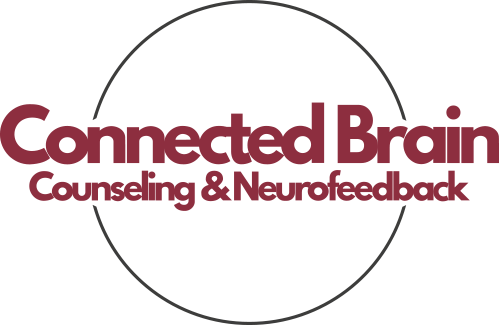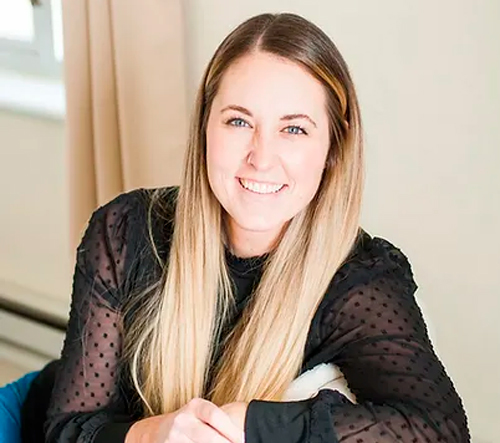Young adult anxiety is a common challenge faced by many young adults as they transition into adulthood. As they navigate the ups and downs of growing up, young adults may experience feelings of anxiety, fear, and stress that can have an impact on their mental and physical health. In this blog post, we will discuss five ways to ease the anxiety associated with growing up and provide helpful tips to help young adults manage their anxiety.
1) Remember, ANXIETY IS NORMAL!
As a young adult, it can be easy to feel overwhelmed and anxious about the many changes you are facing. It is important to remember that these feelings are completely normal! Growing up is a process of transitioning from childhood to adulthood, and it often involves learning new skills, exploring new ideas, and making difficult decisions.
This transition can be overwhelming, and it is okay to feel scared or uncertain. Recognizing that your anxiety is normal can help you take steps to manage it in healthy ways. Remember, you are not alone in feeling anxious, and there are resources available to help you cope.
2) Identify Your Triggers for Anxiety

When it comes to easing young adult anxiety, it is important to identify the triggers that lead to feelings of stress and worry. Common triggers include a lack of control over situations, feeling overwhelmed, or facing uncertainty. If you can recognize when these triggers are present, you can then begin to develop coping strategies for managing them.
The first step in identifying your triggers is to take some time to reflect on your thoughts and feelings. Ask yourself questions such as: When do I feel the most anxious? What types of situations bring on those feelings? Once you can identify the situations or topics that bring on anxiety, it will be easier to create a plan for how to handle them.
It can also be helpful to keep a journal or list of the times you felt anxious and what was happening when those feelings arose. This can help you determine patterns in your anxiety, which can give you insight into what might be triggering your feelings of stress.
Once you have identified your triggers, it will be easier to create an action plan for managing your anxiety. Developing coping mechanisms like deep breathing exercises or mindfulness practices can help you reduce the intensity of your worries and maintain control during difficult situations. You may also want to find healthy outlets like exercise, art, or talking with friends to help ease anxious feelings.
3) Develop Coping Mechanisms for Anxiety
When dealing with anxiety as a young adult, it’s important to develop coping mechanisms. Coping mechanisms help to manage and reduce the feelings of anxiety and give you a sense of control over your mental health.
One way to do this is to create a “calm corner” in your house or bedroom where you can go to relax and practice mindfulness activities like deep breathing, stretching, or journaling. Taking regular breaks throughout the day can also be beneficial. Set a timer and spend 15-20 minutes doing something calming such as listening to music, going for a walk, or reading a book. If 15 minutes is too lofty of a task…start with just two or three minutes!
It may also be helpful to challenge negative thoughts and reframe them in a more positive light. For instance, if you find yourself thinking “I will never be successful”, try to reframe it to “I can learn new skills and work hard to achieve success”. Cognitive-behavioral therapy (CBT) is a great tool for managing anxiety and can be used in conjunction with traditional talk therapy. During CBT therapy sessions, a therapist helps you learn how to identify and challenge unhelpful thoughts in order to reduce anxious feelings.
Overall, it is important to find the coping mechanisms that work best for you and make sure to take time for self-care. This can include activities like spending time with friends and family, eating healthy meals, exercising regularly, getting enough sleep, and engaging in hobbies that bring you joy. With the right support and tools, you can learn how to better manage anxiety and lead a fulfilling life as a young adult.
4) Communicate Your Needs + Set Healthy Boundaries
One of the most important things for managing young adult anxiety is to learn to communicate your needs. This can be difficult because it requires having an honest dialogue with yourself and with others about what you are feeling.
When communicating your needs, it’s important to be mindful of how you are expressing yourself. Make sure that you are staying calm and that your words are constructive rather than hostile. This will help create a safe space where others can understand and empathize with your feelings.
It’s also important to take the time to listen to yourself and to recognize when something isn’t feeling right. This can include physical symptoms such as tension, headaches, or stomachaches. Acknowledge these signals and make sure that you are taking the time to understand why they are occurring.
When communicating with others, it’s important to be direct in expressing how you feel. This can be a difficult thing to do, especially if you are used to bottling up your feelings or hiding them behind false smiles. However, it is necessary in order to get the support that you need.
By being direct and honest about your needs, you will not only help yourself, but you will also help those around you to better understand and support you. Remember that it is not selfish to ask for help and that it is okay to reach out when you are feeling overwhelmed.
5) Talk With a Therapist in Denver for Anxiety
When it comes to dealing with young adult anxiety, it’s important to remember that you don’t have to go through it alone. Talking with a professional can be a great way to help manage your anxiety and move forward in a healthier way.
It’s important to find a therapist who is experienced in working with anxiety in Denver. They should also be able to understand the challenges you are facing and offer helpful tools and techniques to help you cope with anxiety. A therapist can also provide support and understanding when you need it.
When searching for a therapist, make sure you find one who will listen to your concerns and offer personalized solutions. They should also be able to provide evidence-based therapies such as cognitive behavioral therapy, exposure therapy, and mindfulness-based cognitive therapy. These treatments have been proven to be effective in helping people manage their anxiety.
It’s also important to keep an open mind when it comes to working with a therapist. They may suggest different strategies or approaches that can help you manage your anxiety, so it’s important to be willing to try them out.
Connected Brain Counseling offers at team of therapists (meet the team here!) who specialize in anxiety therapy in Denver.
No matter who you decide to talk to, the most important thing is that you find someone who you feel comfortable with and trust. Talking with a professional can be an invaluable tool in managing young adult anxiety, so don’t be afraid to reach out for help!





